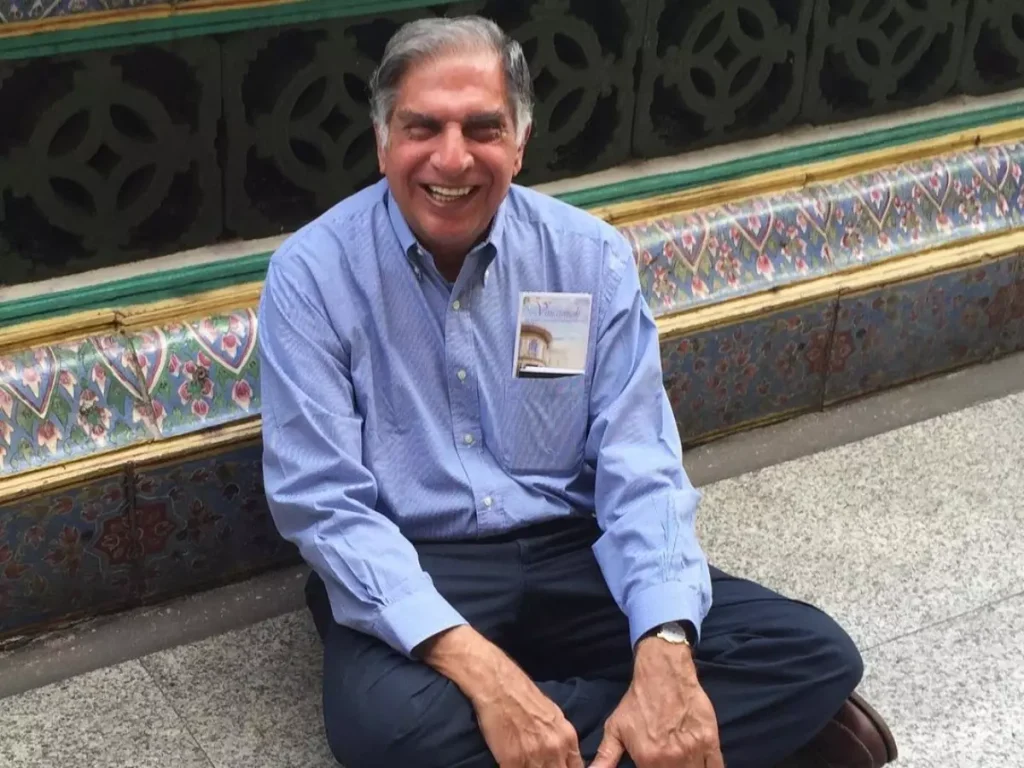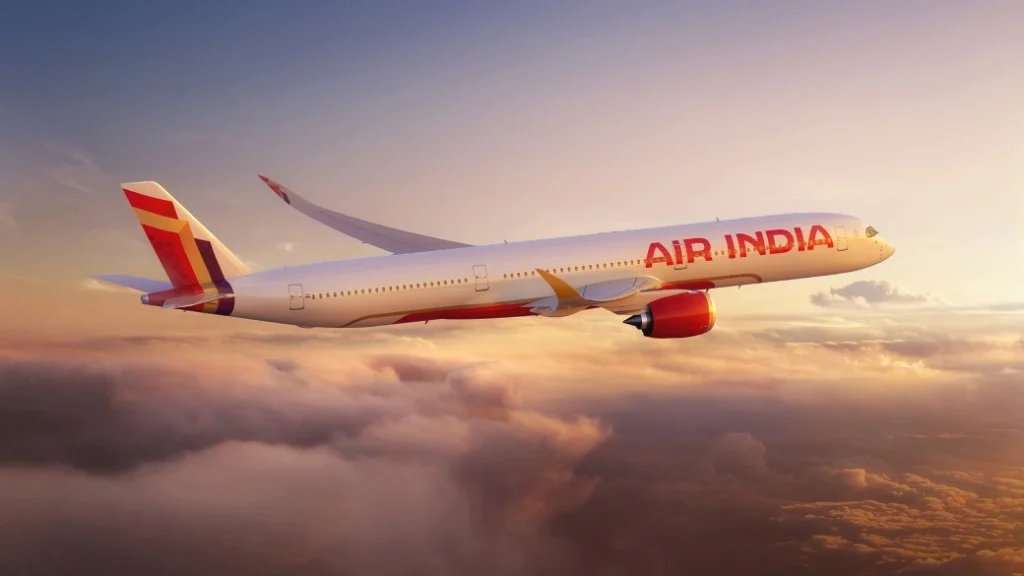The Journey of Ratan Tata: From Air India to Taj Hotels
Have you ever thought about how one person can change a whole field? Ratan Tata is known for his big ideas and for helping others. He has made a huge difference in the travel industry in India and other places, but many people might not realise just how much he has done. Ratan Tata used to be the boss of the Tata Group, and he changed many businesses for the better. One of the areas he made a big impact in is travel. He helped make Air India and Taj Hotels famous all around the world. Because of his hard work and focus on making things better, travelling in India today is much nicer and easier for everyone. Let’s learn about the journey of Ratan Tata and how they made travelling an amazing experience for all of us!
Book here Domestic and International Tour Packages.
History of Ratan Tata

Ratan Tata, born on December 28, 1937, is an iconic Indian industrialist and philanthropist, best known for his leadership of the Tata Group, India’s largest and most respected conglomerate. He is the great-grandson of Jamsetji Tata, the founder of the Tata Group. Ratan Tata took over as chairman in 1991, steering the group through economic liberalization in India and expanding its global footprint through strategic acquisitions, such as Jaguar Land Rover and Corus Steel. He is revered for his visionary leadership, transforming Tata into a global enterprise, while maintaining its strong values of ethics and social responsibility. After retiring as chairman in 2012, Tata has remained active in philanthropy and mentoring startups, continuing to influence India’s business landscape.
How Ratan Tata Changed the Travel Sector in India?
Ratan Tata’s influence on the travel sector in India came primarily through Tata Group’s investments and innovations in the hospitality and transportation industries. Under his leadership, Tata Group expanded its reach in both sectors, making significant contributions that changed the way India travelled.
1. Taj Hotels
As the chairman of Tata Group, Ratan Tata oversaw the growth of the Taj Group of Hotels, one of India’s leading luxury hotel chains. Taj Hotels expanded globally and domestically, raising standards for hospitality in India. The brand became synonymous with world-class service, catering to both domestic travellers and international tourists.
2. Air India and Vistara
Though Tata Group originally founded Air India, the airline was nationalized in the 1950s. However, under Ratan Tata’s leadership, Tata Group later re-entered the aviation sector by launching Vistara in partnership with Singapore Airlines in 2015. Vistara introduced premium services to domestic air travel, offering a more refined experience and raising competition in the sector. Tata’s recent reacquisition of Air India in 2021 further strengthened the company’s role in the aviation industry.
3. Innovation and Connectivity
Tata Group’s investments in infrastructure and technology, including Tata Communications and Tata Consultancy Services (TCS), contributed to improved connectivity and the digital transformation of travel services. Through its technology solutions, the Tata Group played a role in enhancing booking systems, customer service, and logistics in the travel industry.
Ratan Tata's role in reviving Air India

Ratan Tata played a pivotal role in reviving Air India, a historic but struggling national airline, through his strategic vision and the Tata Group’s re-acquisition of the airline in 2021. This move marked a homecoming for Air India, as it was originally founded by Tata Group’s J.R.D. Tata in 1932 before being nationalized in 1953. The re-acquisition signalled a new chapter for both Air India and the Tata Group, with Ratan Tata’s influence driving the revival efforts.
Key Aspects of Ratan Tata's Role
1. Strategic Acquisition
Under Ratan Tata’s guidance, Tata Sons successfully bid for Air India in 2021, taking control of the airline from the Indian government. The move was seen as a long-term vision to restore the airline’s former glory, leveraging Tata’s operational expertise and deep-rooted history in aviation.
2. Operational Overhaul
Post-acquisition, Tata Group implemented a major overhaul to address Air India’s operational inefficiencies. This included streamlining costs, enhancing customer service, and modernizing the fleet. With Ratan Tata’s focus on high standards of service, Air India was set on a path to regain its reputation as a world-class airline.
3. Leveraging Synergies
Tata Group’s involvement in the aviation industry through Vistara and AirAsia India allowed for synergies in operations, helping Air India align with global standards. This integration of resources and expertise was part of Ratan Tata’s long-term vision to create a unified and competitive aviation brand for India.
4. Global Vision
Ratan Tata’s global business acumen was key in shaping Air India’s international strategy. He aimed to transform the airline into a strong competitor in both domestic and international markets, positioning Air India as a premium airline capable of catering to modern travellers.
Conclusion
The Journey of Ratan Tata has been nothing short of inspirational. From taking over the reins of the Tata Group during a tumultuous time to transforming it into a global conglomerate, his leadership and vision have been remarkable. His commitment to innovation, ethical business practices, and social responsibility has set a high standard for the industry. Ratan Tata’s journey is a testament to resilience, integrity, and the power of visionary leadership. Through his leadership of the Tata Group, he has transformed the landscape of hospitality and transportation, leaving a lasting legacy of innovation and excellence.
Here you can also check our Domestic and International Tour Packages.
People also ask about The Journey of Ratan Tata
1. Who is Ratan Tata?
The journey of Ratan Tata is a remarkable tale of visionary leadership, transformation, and philanthropy. Born on December 28, 1937, in Mumbai, he joined the Tata Group in 1962 and began his career on the shop floor of Tata Steel, gaining valuable hands-on experience. In 1991, he became the Chairman of Tata Sons, guiding the conglomerate through a period of significant growth and global expansion. Under his leadership, the Tata Group acquired international brands like Jaguar Land Rover and Tetley and launched the Tata Nano, aimed at making car ownership affordable. Ratan Tata is celebrated not only for his business acumen but also for his unwavering commitment to ethical leadership and social responsibility. After retiring as Chairman in 2012, he turned his focus to philanthropy and startup investments, continuing to support India’s growth and innovation.
2. How did Ratan Tata influence the Indian travel sector?
Ratan Tata’s influence in the travel sector is most evident through Tata Group’s investments in hospitality and aviation. Under his leadership, the Tata Group expanded the Taj Hotels brand globally, introduced Vistara Airlines, and recently re-acquired Air India. These contributions improved the quality of travel and hospitality services in India, raising industry standards and customer expectations.
3. What is Ratan Tata’s role in the revival of Air India?
Ratan Tata played a key role in the Tata Group’s successful bid to reacquire Air India in 2021. His strategic vision and focus on operational efficiency, customer service, and brand value are expected to transform the airline. He has a personal connection to Air India, as it was originally founded by Tata Group in 1932, and he aims to restore its former glory as a global airline.
4. What impact did Ratan Tata have on India’s aviation industry?
Ratan Tata re-entered the aviation industry by launching Vistara in 2015, a full-service airline in partnership with Singapore Airlines. Vistara brought premium services to India’s domestic air travel sector. His leadership also steered the acquisition of Air India, reviving the airline and giving Tata Group a significant presence in both domestic and international aviation.
5. How did Ratan Tata change the hospitality sector in India?
Ratan Tata’s leadership saw the expansion of the Tata Group’s Taj Hotels, a premier luxury hotel chain. His efforts modernized and globalized the brand, elevating hospitality standards in India and establishing the Taj Group as one of the leading names in the global luxury hospitality market.
6. What is the significance of Vistara Airlines in Ratan Tata’s legacy?
Vistara Airlines, launched under Ratan Tata’s leadership, is a symbol of Tata Group’s commitment to innovation and premium services in aviation. The airline brought a new level of sophistication and service quality to Indian air travel, catering to both domestic and international markets. Vistara is seen as a key part of Tata’s aviation strategy, complementing the group’s recent acquisition of Air India.
7. Why did Tata Group reacquire Air India?
Tata Group, under Ratan Tata’s guidance, reacquired Air India to restore the airline’s historic legacy and create a strong aviation brand. Ratan Tata, who has a deep emotional connection to the airline founded by Tata Group’s J.R.D. Tata views this acquisition as an opportunity to improve its services and re-establish it as a premier global airline.
8. What is Ratan Tata's vision for Air India’s future?
Ratan Tata’s vision for Air India involves turning the airline into a world-class service provider, known for efficiency, premium customer experience, and operational excellence. He aims to reposition Air India as a leading player in both domestic and international markets, leveraging synergies with other Tata-owned airlines like Vistara and AirAsia India.
9. What role did technology play in Ratan Tata’s influence on the travel sector?
Ratan Tata ensured that the Tata Group leveraged technology to enhance the travel sector, including digitizing booking systems, improving customer service, and introducing tech-driven operational efficiencies. Companies like Tata Communications and Tata Consultancy Services (TCS) played key roles in driving these advancements.
